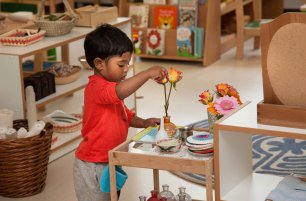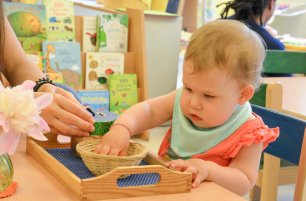Video: Blueprint for the classroom: A Way to Move Forward
How do we encourage peacefulness and respect in the Montessori classroom? Together with the children, we prepare a blueprint for our classroom community!
We invite children to share their vision for a wonderful classroom and then ask them: “What do we need to do to achieve that?” Using their ideas and beliefs, we help them define ground rules, from “listening to the person who is talking” to “being gentle with one another”. By engaging them in the process, the children feel heard, take ownership of the rules and feel personally responsible for the classroom community. Check out this video to see how we do it!
Want to learn more? Read our next article:




